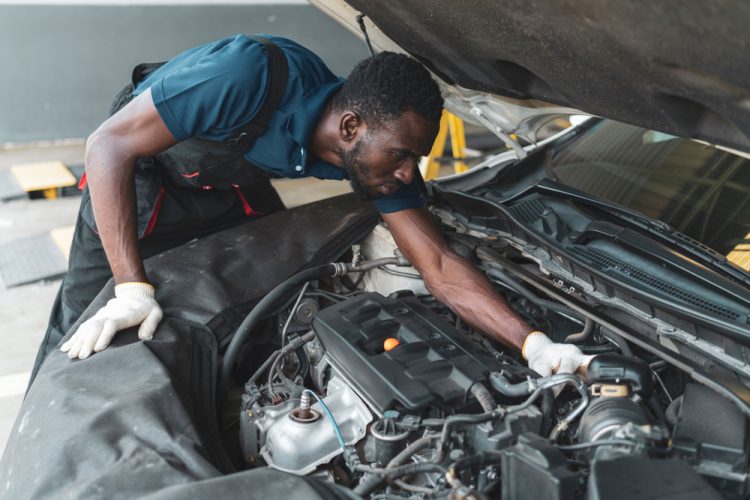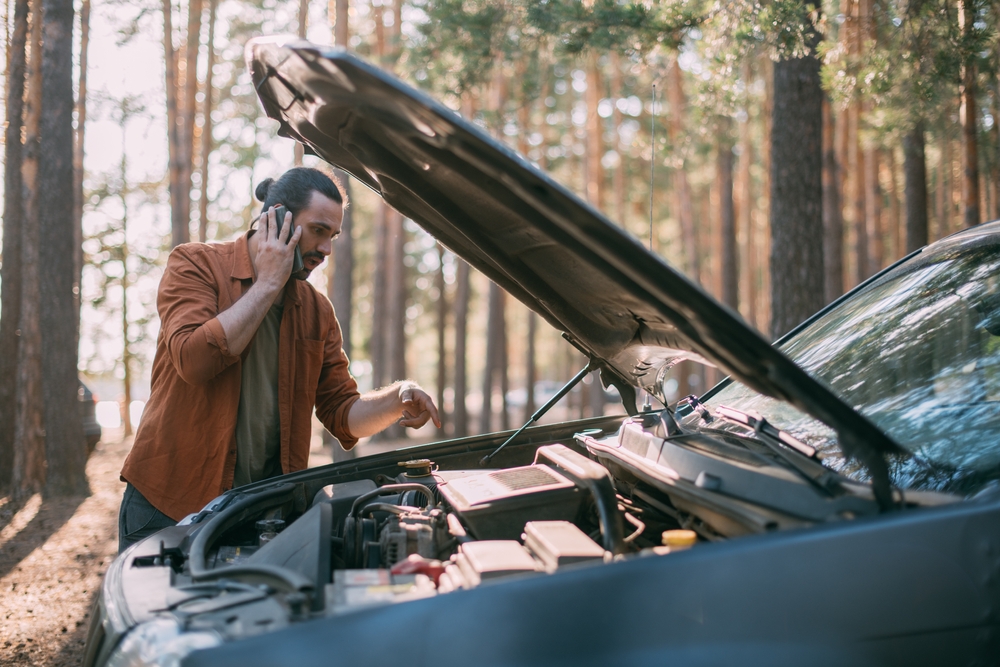
When your car starts making a strange or unusual noise, it’s essential to understand the meaning and potential causes. Car sounds can indicate underlying issues that require maintenance or repair, even in newer cars. Drivers should be aware of car noises and what to do or the reasons behind it.
Typically, if we hear a noise, we automatically go to a car repair shop. If you are on the road when you hear it and don’t want to continue driving, remember, some car insurance policies have roadside assistance so you can call to get towed. It is always a good idea to seek help at your local auto shop and prevent a major problem.
Regardless, it is still important to familiarize yourself with the most common noises in case it is a simple repair you can do yourself. The following is a list of car noises to help you make the best decision.
Understanding Different Types of Car Noises
Cars are complex, powerful machines and a feat of modern engineering. This kind of complexity also means a list of different things that could be going on under the hood of your car. Understanding the difference between common noises is a good place to start.
· Squeaking Noises
One sound you might hear is a high-pitched squeal. This can be associated with the accessory belts in your car’s engine compartment. These belts, including the car’s serpentine belt power essential components like the alternator and air conditioning, and may become worn or loose over time. Addressing this issue promptly is crucial to prevent further damage and ensure the proper function of these components.
· Rattling Noises
A clunking or rattling sound could be due to various reasons. Loose components such as bad bushings or loose wheel nuts can create these noises. Additionally, worn-out CV joints or brake discs may also be the cause. Paying close attention to these sounds is important as they can indicate potential safety hazards. In such cases, it’s recommended to make an appointment to consult a professional mechanic.
· Grinding Noises
Grinding or whirring sounds, especially when braking, should not be ignored. They often point to problems with the brake system. Worn-out brake pads or damaged brake rotors can result in a metal-on-metal grinding noise, compromising your braking power and potentially damaging the rotors. Installing new brake pads and, if necessary, resurfacing or replacing the rotors is crucial for safe and effective braking.
· Humming Noises
Humming noises while driving can be a sign of a wheel-bearing problem. Wheel bearings are responsible for the wheels to turn with minimal friction. A worn-out wheel bearing, or damaged one, can produce a low-pitched humming sound, especially when the vehicle is in motion. Ignoring a faulty wheel bearing can lead to a more serious problem, including wheel separation, so seeking professional assistance ASAP is crucial.
· Whistling Noises
Whistling noises typically indicate an air or fluid leak. A common source of whistling sounds is a damaged or loose vacuum hose. Another possibility is a leaking gasket, such as the intake manifold gasket. These leaks can affect the engine’s performance, leading to decreased fuel efficiency and potential damage if not addressed promptly.
· Knocking Noises
Knocking sounds from the engine can have various causes. They might be attributed to low-quality fuel, worn-out spark plugs, or even major engine problems. Consulting a professional mechanic is recommended to diagnose and take care of the problem properly, preventing further damage to the engine.
· Hissing Noises
Hissing noises usually indicate a problem with the vehicle’s cooling system. A leaking radiator, coolant hose, or a faulty water pump can result in a loss of coolant and subsequent hissing sounds. A damaged cooling system can lead to engine overheating and potential engine damage if not addressed promptly. This is particularly troublesome during excessive heat. Seeking professional help to identify and fix the coolant leak is essential.

When to Seek Professional Help
While some car noises can be addressed on your own, there are instances when professional assistance is necessary:
- Persistent or worsening noises: If the noise continues or becomes more pronounced despite your attempts to identify and fix it, it’s time to involve a professional mechanic.
- Safety concerns: Any noise that affects your vehicle’s safety, such as braking issues or steering abnormalities, should be addressed by a professional immediately.
- Lack of knowledge or tools: If you lack the necessary expertise or tools to diagnose and repair the issue, it’s best to consult a professional mechanic.
- Warranty considerations: DIY repairs might void your vehicle’s warranty. Consulting a professional ensures that your warranty remains intact.
Preventative Maintenance to Avoid Car Sounds
The best way to prevent it is to prioritize preventative maintenance. A few tips to keep your car engine, and more, in good shape:
- Follow the manufacturer’s recommended maintenance schedule for regular inspections and servicing, like oil changes.
- Pay close attention to warning signs, such as dashboard lights, unusual engine noise, or low power output.
- Keep your tires properly inflated, check for wear regularly, avoid potholes, and rotate them as recommended.
- Have your brakes checked regularly and promptly replace worn brake pads and damaged brake rotors.
- Maintain a healthy cooling system, including checking coolant levels and addressing any leaks promptly.
By understanding them and the meaning, you can identify potential problems and decide when to seek professional help. It’s also a useful skill when buying a used car. Addressing car sounds promptly can prevent further damage and reduce your chances of having a car issue at the wrong time.
Remember to consult a professional mechanic when necessary and prioritize preventative maintenance. Taking care of your car will not only save you money in the long run but also contribute to the longevity and efficiency of your vehicle.
Get Affordable Online Auto Insurance for the Best Protection on the Road
When considering ways to stay safe on the road and save money in the long run, consider low-cost auto coverage. At Freeway Insurance, we can help you find the policy that provides the right amount of protection at a price you can afford. Get a fast and free quote online, give us a call at (800) 777-5620, or stop by one of our convenient locations.


